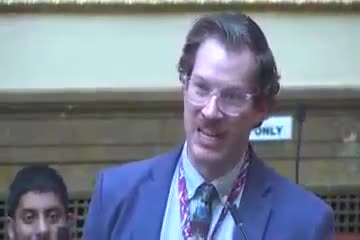Utah House passes HB 95 repealing outdated debt liability statute
January 29, 2024 | 2024 Utah Legislature, Utah Legislature, Utah Legislative Branch, Utah

This article was created by AI summarizing key points discussed. AI makes mistakes, so for full details and context, please refer to the video of the full meeting. Please report any errors so we can fix them. Report an error »

Utah lawmakers made significant strides during the 2024 General Legislative Session on January 29, with the passage of several key bills aimed at addressing local governance and taxation issues.
One of the most impactful decisions was the unanimous approval of House Bill 95, which repeals a long-standing statute regarding the liability of relatives for others' debts. Representative Stoddard, who sponsored the bill, emphasized that the statute, in place since 1977, has never been utilized and represents poor policy. The bill passed with overwhelming support, receiving 75 votes in favor and none against, and will now move to the Senate for further consideration.
In addition to HB 95, lawmakers also passed House Bill 18, which amends mineral production tax withholding regulations. This bill aligns the filing and reporting timelines for mineral production withholding with those already established for employer withholding. It also reduces the income tax withholding rate for mineral producers from 5% to a variable rate based on current tax rates. This measure, too, saw strong bipartisan support, passing with 75 votes in favor.
Another notable bill, House Bill 113, introduces a local option sales tax to fund the construction or remodeling of county jails in rural areas. Representative Shipp explained that this initiative arose after a failed bond election in Iron County, where residents expressed concerns over permanent property tax increases. The proposed sales tax, which could be increased by up to 40 basis points, would be temporary and would cease once the jail is fully funded. This bill also received unanimous support, reflecting a collaborative effort to address local infrastructure needs without imposing long-term tax burdens on residents.
These legislative actions highlight a proactive approach by Utah lawmakers to refine existing laws and provide flexible funding solutions for local governments. As these bills advance, they promise to have a lasting impact on community governance and fiscal responsibility in the state.
One of the most impactful decisions was the unanimous approval of House Bill 95, which repeals a long-standing statute regarding the liability of relatives for others' debts. Representative Stoddard, who sponsored the bill, emphasized that the statute, in place since 1977, has never been utilized and represents poor policy. The bill passed with overwhelming support, receiving 75 votes in favor and none against, and will now move to the Senate for further consideration.
In addition to HB 95, lawmakers also passed House Bill 18, which amends mineral production tax withholding regulations. This bill aligns the filing and reporting timelines for mineral production withholding with those already established for employer withholding. It also reduces the income tax withholding rate for mineral producers from 5% to a variable rate based on current tax rates. This measure, too, saw strong bipartisan support, passing with 75 votes in favor.
Another notable bill, House Bill 113, introduces a local option sales tax to fund the construction or remodeling of county jails in rural areas. Representative Shipp explained that this initiative arose after a failed bond election in Iron County, where residents expressed concerns over permanent property tax increases. The proposed sales tax, which could be increased by up to 40 basis points, would be temporary and would cease once the jail is fully funded. This bill also received unanimous support, reflecting a collaborative effort to address local infrastructure needs without imposing long-term tax burdens on residents.
These legislative actions highlight a proactive approach by Utah lawmakers to refine existing laws and provide flexible funding solutions for local governments. As these bills advance, they promise to have a lasting impact on community governance and fiscal responsibility in the state.
View full meeting
This article is based on a recent meeting—watch the full video and explore the complete transcript for deeper insights into the discussion.
View full meeting

